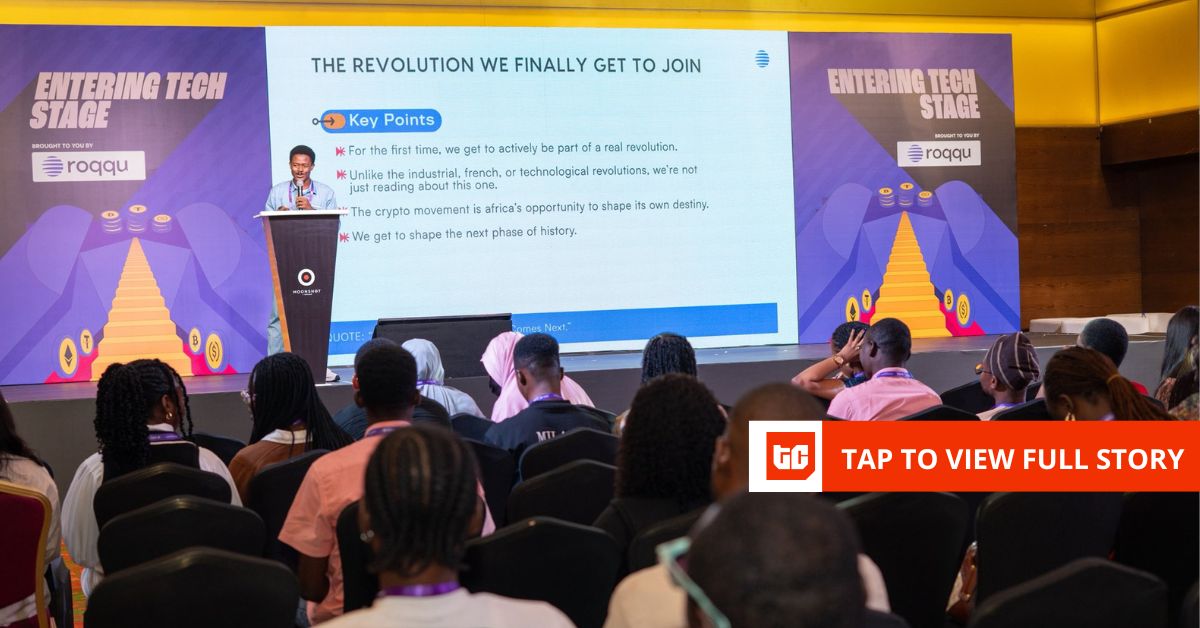African startup founders must resist the temptation to import solutions and instead build platforms tailored to local needs, Israel Ololade, Chief Product Officer at Roqqu, said at Moonshot by on Thursday, October 16. Speaking on building momentum in Africa’s tech ecosystem, Ololade argued that the continent’s most successful innovations emerge when founders solve problems they’ve experienced firsthand rather than chasing popular trends.
“No one can build for Africans like Africans. Our taste bud is just very different,” Ololade said. “Most of the platforms that were serving Nigerians in the cryptocurrency space were basically imported. We saw that this was a gap.”
Roqqu, Nigeria’s largest indigenously owned crypto platform, has reached nearly 2 million users across Africa without raising external investment, Ololade said, a remarkable achievement in a challenging funding environment where venture capital deals in fintech dropped by 52% between 2022 and 2024. The company’s growth stems from solving a fundamental problem in Nigeria’s crypto market, which ranks second globally in adoption and processed approximately $59 billion in cryptocurrency value between July 2023 and June 2024. By unifying exchange rates and consolidating fees into a single transparent rate, Roqqu addressed a pain point that founders understood intimately because they had faced it themselves.
“When we started Roqqu back in July of 2019, if you wanted to enter into the cryptocurrency space, it was almost hard for you to anticipate what the outcome of every transaction is going to be,” Ololade explained. The platform’s approach, eliminating separate buy and sell rates for USD, quickly proved its product-market fit.
Ololade urged African founders to view competitors as allies rather than threats, pointing to how bank branches cluster together because concentration drives growth. “There is only so much a single player can solve in an industry,” he said. “The competition that we define as threats is actually the help to easing the burden.” He cited Microsoft’s 1997 bailout of Apple despite their rivalry, noting that collaboration strengthens entire industries rather than weakening individual players.
“Don’t follow what’s popular. Follow problems,” Ololade said. “The byproduct of solving a problem efficiently is profitability.” He challenged founders to build for original use cases rather than get-rich-quick narratives, noting that Roqqu focuses on cryptocurrency’s foundational purpose, payments, regardless of market volatility. This approach aligns with broader market behavior, as stablecoins accounted for 43% of all digital asset transactions in Africa in 2024, driven by practical use cases like payments and cross-border transfers rather than speculation.
The stakes for building African solutions remain high. From cloud infrastructure latency caused by data centers located outside Africa to payment systems that still struggle with scale, Ololade argued that the continent’s tech ecosystem must take ownership of problems that directly impact its users rather than waiting for imported solutions that may never fully address local realities.









